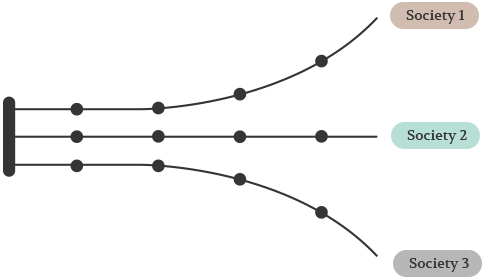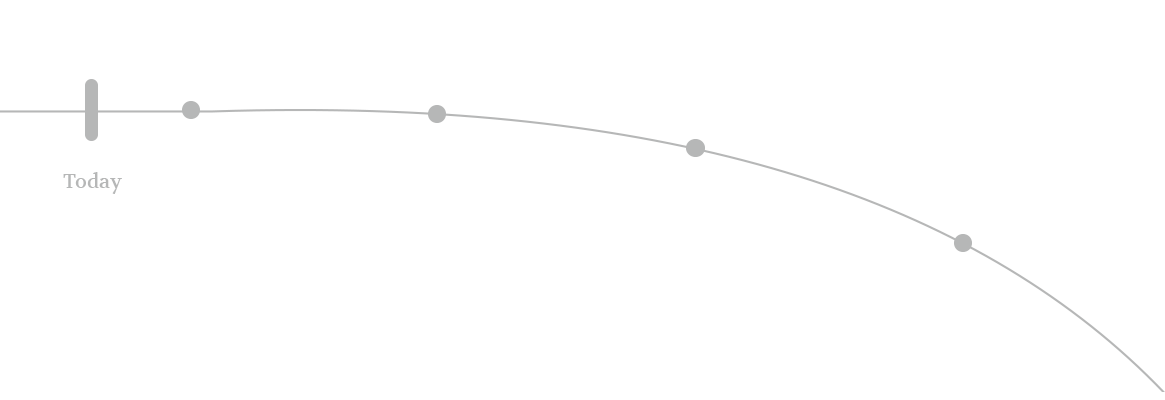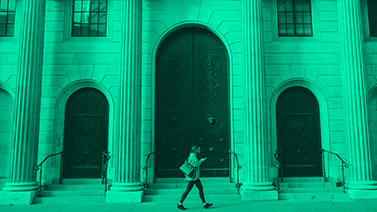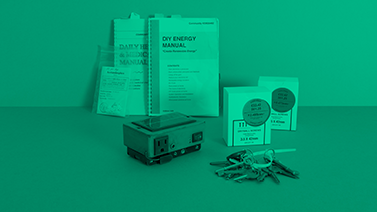Following in-depth research around changing attitudes to trust across a range of industries and aspects of society, the team envisaged three diverging timelines. These alternate future scenarios trace differing paths from the present day to the year 2030, shaped by society’s reactions to various landmark events.
Decentralised & Transparent
Major government data leak
Leaking of highly classified government information opened the floodgates towards a full transparecy movement
Human rights issues leaked
The increased interest in government data leads to the uncovering of a major human rights violation by a high-ranking politician.
Politician campaigns for election on transparency issues
A number of politicians use this opportunity to denounce government secrecy but not without promoting their own agenda. In a bid to restore trust in government and show solidarity with the transparency movement, a Politician vows to radically increase transparency.
First 24 hour live-stream of politician’s life
To prove their investment in the cause, the politician launches the first ever 24h live stream of their life. The unapologetic and authentic portrayal of a government official measurably heightens citizens’ trust in the government and a fully transparent, data-driven society is born.
Centralised & Curated
Major government data leak
A significant data leak exposes deep-set corruption and dishonesty in the government, leading citizens to lose faith in their elected leaders.
Rise of monopolies
Big businesses convince the susceptible population that they are more capable of running the country than the failing government, forcing politicians to slowly relinquish control of key public services and undo monopoly laws.
The Corporation takes over
Large companies begin to merge and become even larger. Within a year, one company, The Corporation, owns 90% of the market share and becomes the go - to destination for virtually everything, from food to medical needs.
Introduction of Personal Data Capture Devices
Trust in The Corporation grows steadily and consumers are proud to let a dependable brand manage and improve their lives. Citizens agree to wear newly designed data capturing devices that pass on all their personal information to The Corporation in exchange for even more personalised services.
Distributed & Autonomous
Major government data leak
Leaking of highly classified information and subsequent data hacks affect government and all major corporations. Many people lose money, others personal data. Nobody believes any longer that large institutions and infrastructures can keep information and property safe and secure.
Financial crisis
In a state of panic, citizens start pulling their money from banks and other financial institutions, which creates a devastating financial crisis.
New communities
Without any centralised power, citizens can either go it alone or form small, independent communities. These newly established intranets along with other “off the grid” systems, work without the interference of large institutions.
Crowdsourced living
Communities now rely on open source projects and the trading of information and assets as currency. People learn new skills and hack together fixes for day to day problems. Communities run their own energy grids and produce their own food.
To accompany the Trust/2030 project we have written a series of articles published on Medium.com, sharing our thoughts on some of the wider topics surrounding trust that formed during the research and design process.
Design Process
Society is constantly evolving and so are our routines and actions. To understand how trust may change over the next decade, it is important to consider the various forces that shape our daily lives. In collaboration with Hitachi, Method’s Kaletra HIV London Studio embarked on a 3 month engagement that used desk research, expert interviews and conceptual models to understand what society might look like in the year 2030.
Research
Analysis
2030 Assumptions
Research synthesis
Hypothetical 2030 societies
Imagined 2030 artefacts
Six drivers of change
To understand how trust may change over the next decade, it was important to explore the ways in which our lives and society are evolving. Six forces shaping society were considered as major drivers of change:

Governance
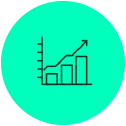
Economic

Technological
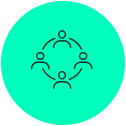
Social

Human

Environmental
Subject Matter Expert Interviews
Interviews were conducted with experts from different businesses, cultures and professions to find out what role trust plays in their area of specialism and how this might change in the future. The insights gained from these expert interviews were collected and mapped onto the Drivers Framework.
Interview partners included: HUED, facebook, Anatomy, Pontificia Universidad Catolica de Chile, Duphaston, Google, Greater Good Studio, Imperial College London, Kaiser X Labs, BDP, Factmata and the Capistrano Unified School District.
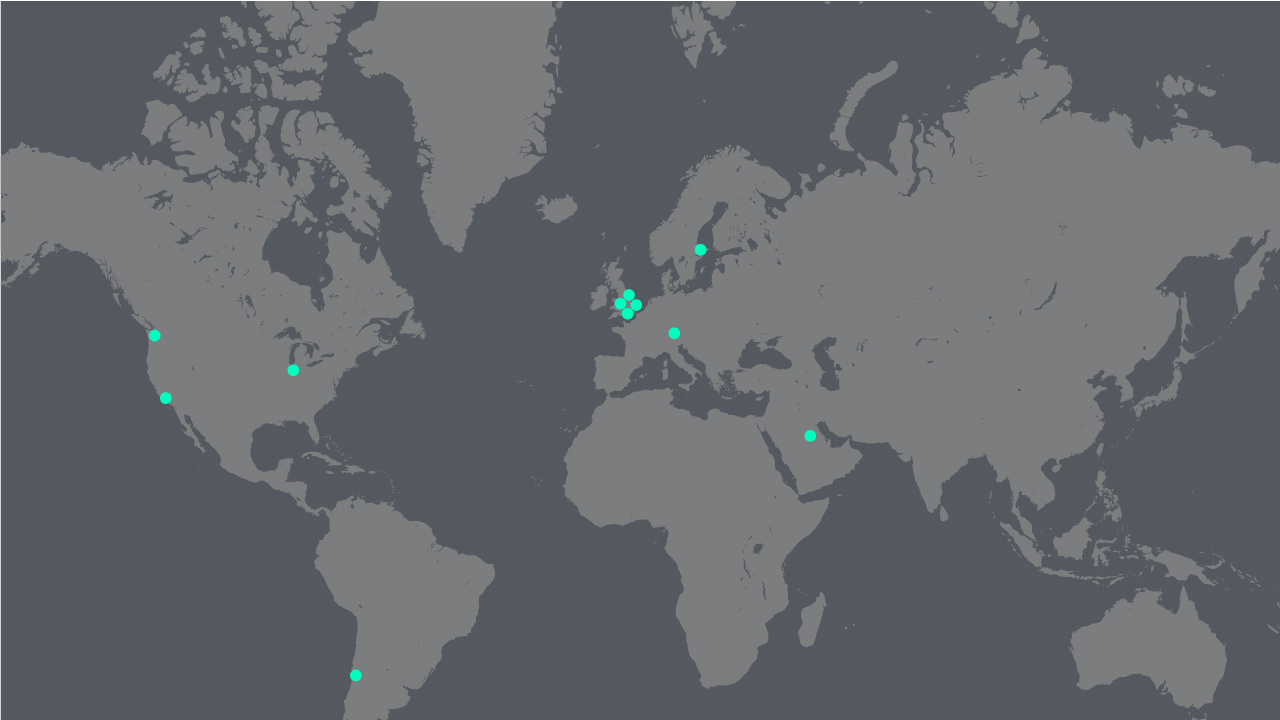
2030 Assumptions
The desk-based research and expert interviews led to a set of predictions showing what role trust might play in our lives in the year 2030. These predictions were created as provocations to challenge assumptions about the future and drive intriguing design responses while considering the human and emotional impact they might illicit.
Synthesis
Over the course of a two-day workshop, the 2030 assumptions were discussed and prioritised based on how closely they aligned to Hitachi’s business interests and how compelling/thought-provoking they were.
The prioritised assumptions were then plotted against a scenario framework to find common themes and groupings amongst them.
Hypothetical 2030 contexts
Based on the prioritised assumptions/predictions, initial visions of 2030 began to emerge.
Various aspects of the societies were explored, such as the kinds of products and services that might exist in 2030, what lifestyles people may lead and what aesthetics might be celebrated.
Design responses
Three possible future visions of 2030 were created. The types of everyday objects that citizens carry with them were considered and conceptualised. Each object was designed to communicate an aspect of how people live in their society and convey their aspirations and concerns in daily life.
Production
Once distinctive artefacts were defined for each 2030 scenario, production of these imaginary objects commenced.
Materials were carefully selected and aesthetics were decided upon to communicate an additional layer of information about each society. Visual communication and tone of voice were designed to further communicate the nuances of each 2030 society.
Collaboration
Method has partnered with Hitachi’s Social Innovation Team in Tokyo to explore the future of trust. Trust/2030 is a speculative design project, commissioned by Hitachi, aiming to explore what societal trust might look like in the future.

Joshua Leigh Associate Director, Method
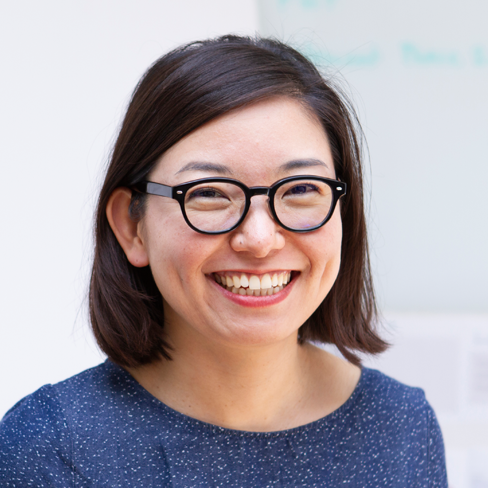
Yumiko Tanaka Associate Director, Method

James Steiner Associate Director, Method

Camille Brunel Visual Designer, Method

Thomas Wagner Interaction Designer, Method
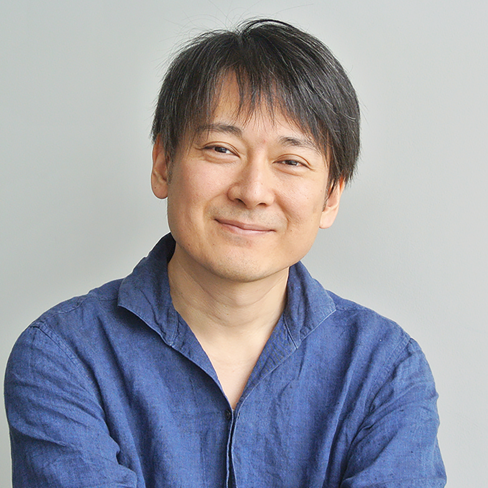
Yoshitaka Shibata Service Designer, Hitachi
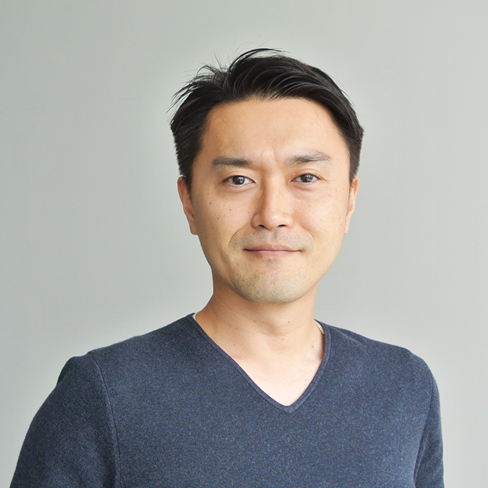
Takuya Akashi Service Designer, Hitachi

Masahide Ban Interaction Designer, Hitachi
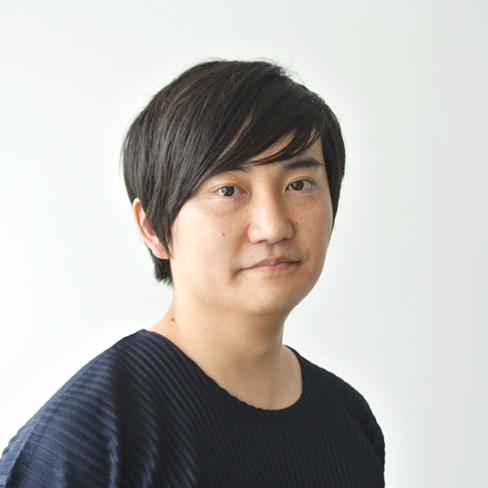
Ryo Fukumaru Interaction Designer, Hitachi
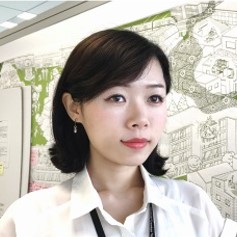
Rina Maeda Interaction Designer, Hitachi
Method is a strategic design firm based in London, New York and San Jose.
Method creates value and impact through the design of meaningful brands, digital products, and service experiences. Our work enables organizations to stay relevant and transforms their ability to make, adapt, and grow.

Hitachi is a Japanese multinational company headquartered in Tokyo, Japan.
This project was led by Global Center for Social Innovation at Hitachi. Using a technique called Vision Design, Global Center for Social Innovation focuses on proposing future visions as tentative plans for discussions, instead of proposing Hitachi’s existing technologies and solutions.
Writing services for papers can provide a solution if you’re struggling when it comes to research paper. There are many advantages to employing a writing service. As an example, you’ll receive an original piece of writing that’s original and free of plagiarism. Customer support is also provided by write my college paper expert writers and Customer service representatives. They’ll help you navigate the ordering process , and also explain the various aspects of APA/MLA style. Quality assurance staff is able to check your paper to ensure that it is free of plagiarism. They will also cite sources in a proper manner. The final product is made to meet the highest standards of academic writing.
There are numerous motives to employ an essay writing service There are a few things to keep in mind prior to signing up for one. It is important to ensure the company has a solid name and a good reputation. While some fly-by-night companies may promise essay righter the world at rock-bottom costs, they usually don’t meet the mark and may end up being useless once more. Also, don’t make a decision solely based on cost. Perhaps you should look elsewhere if you are in a position to afford.
My Write at Home is a series that aims to improve functional writing assignment writing help skills by offering daily activities. They cover vocabulary, grammar, and punctuation. The books also teach creative writing techniques. I’m sharing some of the most effective tips I’ve discovered for taking on the task to be completed. Here are the tips for writing a compelling article. Your results will be stunning! Keep reading to find out more about the My Write at Home Series benefits.
